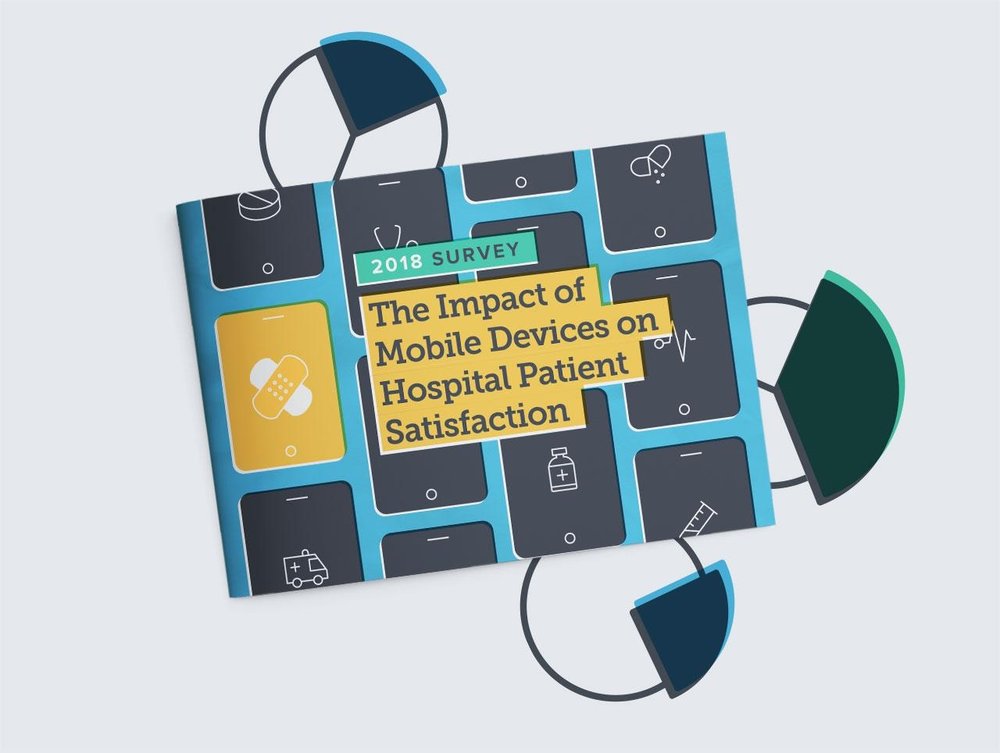New global research conducted by Vanson Bourne, and commissioned by Jamf, which specializes in Apple device management, has revealed a direct correlation between hospital mobile device initiatives and patient satisfaction.
Ninety-six percent of healthcare IT decision makers who are currently implementing a mobile device initiative saw a positive impact on patient experience and satisfaction since rolling this out, with 32% reporting a significant increase in patient experience scores.
While one of the primary benefits of implementing a mobile device initiative is to improve patient care, the study shows that healthcare organizations implementing or planning to implement mobile device initiatives expressed concern around how the devices would impact security and data privacy, and a lack of satisfaction and confidence in their current mobile device management (MDM) solution.

These findings are from a survey of 600 global healthcare IT decision makers within both private and public healthcare organizations of all sizes in the Netherlands, France, Germany, United Kingdom, and the U.S.
The adoption of mobile devices in healthcare organizations is very high, with 90% of organizations implementing or planning to implement a mobile device initiative. And, this is set to increase in the near future. For those currently or planning to implement a mobile device initiative, mobile devices are or will be commonly used in nurses stations (72%), administrative offices (63%) and patient rooms (56%). However, over half of all respondents believe that mobile device usage will further expand to both clinical care teams (59%) and administrative staff (54%) — and nearly half (47%) plan to increase the mobile device use over the next two years.
The influx of mobile devices is having a positive impact on experience, according to the research. Public sector healthcare organizations who have implemented a mobile device initiative (39%) experienced a significant jump in patient experience scores, closely followed by private healthcare (29%).
However, the study shows there’s a systematic disconnect within healthcare organizations, as only 16% of those currently implementing or planning to implement a mobile device initiative have seen or would expect to see increased patient satisfaction.
In order to effectively manage devices and ensure compliance, healthcare organizations need a mobile device management solution. However, when it comes to deploying and managing mobile devices initiatives within hospitals, less than half of healthcare IT decision makers utilizing devices in their organization (48%) are fully confident with their organization’s MDM solution, Adam Mahmud, healthcare alliance manager, Jamf. This is a significant drop from 59% of healthcare IT decision makers who responded the same way in 2016, he adds. This year, security was cited as a top concern, with nearly half (49%) demanding to see an improvement in their MDM solution’s security.
“Security breaches in general are growing exponentially in the healthcare industry. As mobile device initiatives expand in healthcare for use-cases such as patient engagement and clinical care, it is worrying that healthcare IT decision makers are becoming less confident in their mobile device management solution,” Mahmud says. “Hospitals and clinics need a robust and secure MDM offering to support their mobility initiatives aimed at increasing caregiver efficiencies and improving the patient experience.”
As confidential patient data is shared among caregiving staff and healthcare organizations on a regular basis, security is undoubtedly a key priority for healthcare organizations. However, almost all (95%) healthcare IT decision makers believe that their current MDM solution could be improved. In addition, nearly one-third (31%) of respondents who are not implementing a mobile device initiative are avoiding this because of concerns around their ability to meet the security requirements, according to the Jamf study.
Global healthcare organizations are working to protect confidential patient data and ensure compliance with industry regulations, and are also looking to dispatch patch software to mitigate security risks. When asked about their challenges around implementing a mobile device initiative, data privacy (54%), security/compliance (51%) and/or regularly patching software (40%) were highlighted to be the key focus areas.
To access a free copy of the research report, visit: https://www.jamf.com/lp/2018-healthcare-survey/ .
